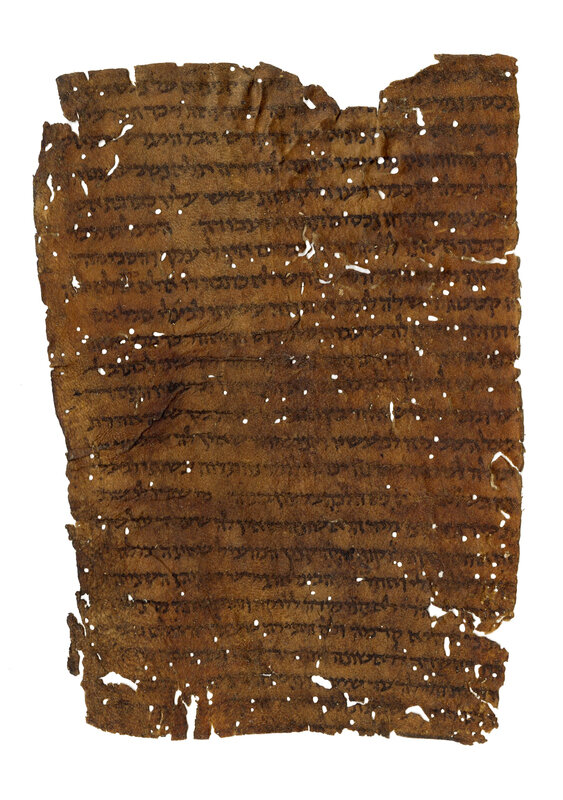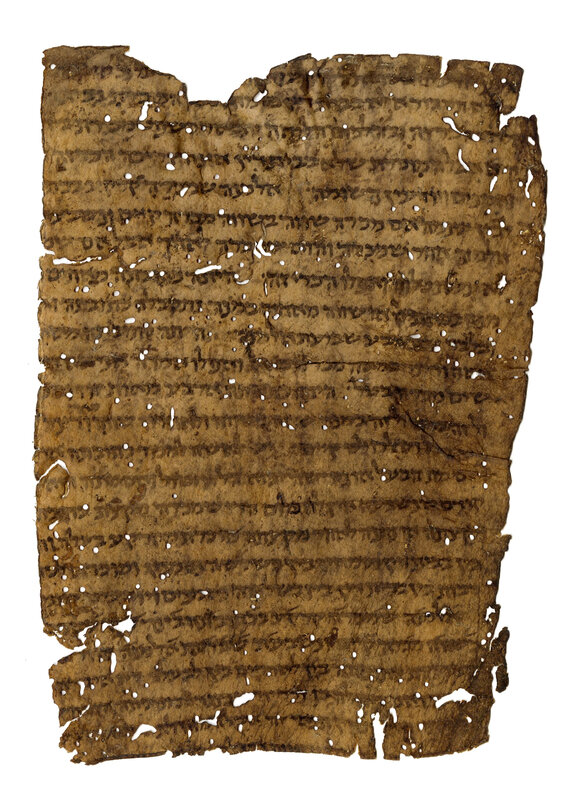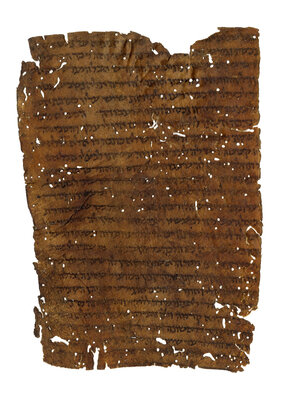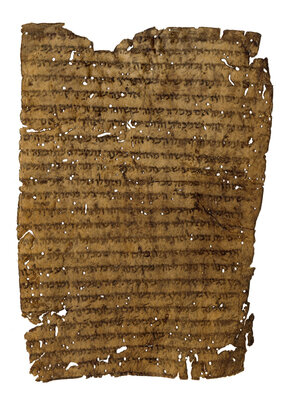Lot 29
MAIMONIDES ON MARRIAGE
A fragment from Rabbi Moses Maimonides, Mishneh Torah, in Hebrew, manuscript on parchment [Middle East, 13th century].
A fragment from Rabbi Moses Maimonides, Mishneh Torah, in Hebrew, manuscript on parchment [Middle East, 13th century].
Sale 2033 - Western Manuscripts and Miniatures
Jun 27, 2024
10:00AM CT
Live / Chicago
Own a similar item?
Estimate
$500 -
1,000
Price Realized
$3,810
Sold prices are inclusive of Buyer’s Premium
Lot Description
MAIMONIDES ON MARRIAGE
A fragment from Rabbi Moses Maimonides, Mishneh Torah, in Hebrew, manuscript on parchment [Middle East, 13th century].
A fragment from Rabbi Moses Maimonides, Mishneh Torah, in Hebrew, manuscript on parchment [Middle East, 13th century].
Manuscripts by Moses Maimonides are rare on the market, and single leaves from Hebrew manuscripts do not appear frequently.
170 x 120 mm. Parchment fragment on one column of at least 24 lines, written in black ink in Oriental (or Eastern) square script (parchment silked, marginal tears, holes, browning of the verso).
This parchment fragment is said to come from the famed Cairo Genizah cache of manuscripts. Discovered at the end of the nineteenth century in and around the Ben Ezra Synagogue, the diverse documents from the Cairo Genizah number well over 400,000, dating from the sixth to the nineteenth century, and are dispersed today in major libraries throughout the world. The present fragment comprises a portion of Rabbi Moses Maimonides’s (1138-1204) magnum opus, Mishneh Torah, in which the author codified all of Jewish law in fourteen volumes. The text preserved here comes from Hilkhot Ishut (Laws of Marriage), chapter 17, beginning at the very end of §9 and continuing midway through §19 (though the text is cut off slightly at the top and on the right-hand edge of the recto/left-hand edge of the verso). It was likely copied somewhere in the Middle East during the thirteenth century, not long after Maimonides' death in 1204.
The Laws of Marriage discussed here are concerned with the monetary value assigned to the ketubbah (marriage contract) and how that value could be claimed by the wife following a divorce or the death of her husband. A regular concern is the procedure for collecting the value of the ketubbah from real estate that the husband had sold, pawned, or donated during his lifetime. The last few laws deal with a situation in which a woman decided to sell, gift, or pawn the rights to the ketubbah during her marriage to her husband.
Provenance
(1) Rabbi M. M. Feldman, Jerusalem, Israel.
(2) Private collection, USA.
We are grateful to Shaul Seidler-Feller for his help cataloguing this fragment. Freeman’s | Hindman thank Senior Consultant Sandra Hindman and Elliott Adam for their assistance in preparing this sale.
Condition Report
Contact Information



